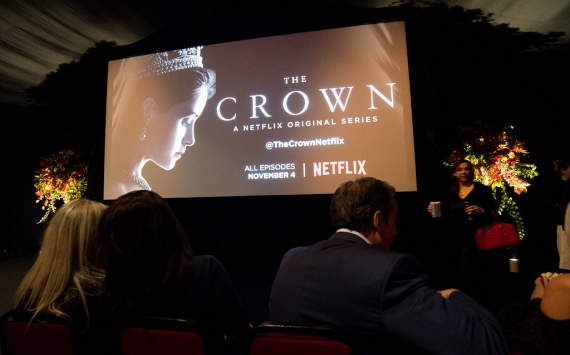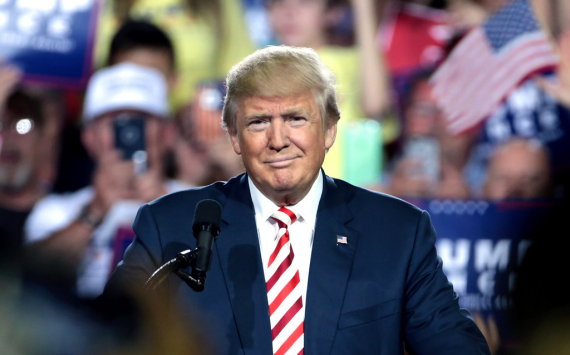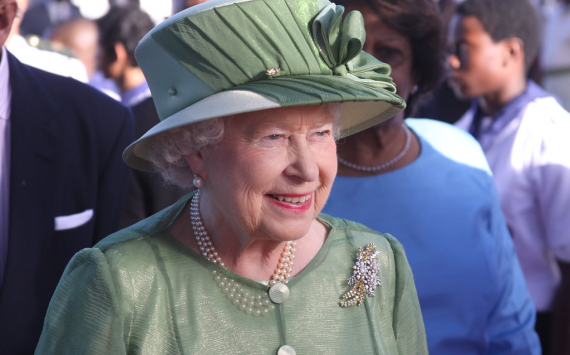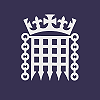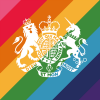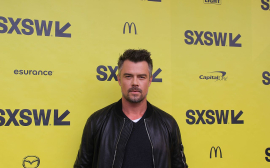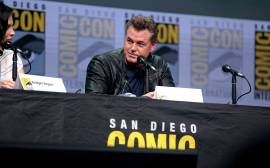- 1. Early life and education
- 2. Consort of the Queen
- 2.1. Royal house
- 2.2. Supporting the Queen
- 2.3. Charities and patronages
- 2.4. Charles and Diana
- 2.5. Longevity
- 2.6. Final years and retirement
- 3. Death
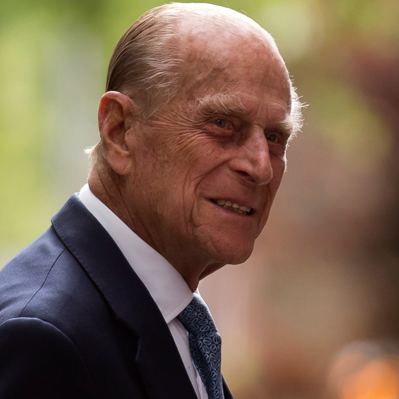
PRINCE
PHILIP,
Duke
of
Edinburgh
Prince
Date of Birth: 10 July 1921
Date death: 9 April 2021
Age at the time of death: 99 years old
Zodiac sign: Cancer
Profession: Prince
Biography
Prince Philip, Duke of Edinburgh was the husband of Queen Elizabeth II. As such, he was the consort of the British monarch from her accession as queen on 6 February 1952 until his death in 2021, making him the longest-serving consort in history.
Philip was born in Greece, into the Greek and Danish royal families; his family was exiled from the country when he was eighteen months old. After being educated in France, Germany, and the United Kingdom, he joined the Royal Navy in 1939, when he was 18 years old. In July 1939, he began corresponding with the 13-year-old Princess Elizabeth, the elder daughter and heir presumptive of King George VI. Philip had first met her in 1934. During the Second World War, he served with distinction in the British Mediterranean and Pacific fleets.
In the summer of 1946, the King granted Philip permission to marry Elizabeth. Before the official announcement of their engagement in July 1947, Philip relinquished his Greek and Danish royal titles and styles, became a naturalised British subject, and adopted his maternal grandparents' surname Mountbatten. He married Elizabeth on 20 November 1947. The day prior to their wedding, the King granted Philip the style His Royal Highness. On the day of their wedding, he was additionally created Duke of Edinburgh, Earl of Merioneth, and Baron Greenwich. Philip left active military service when Elizabeth ascended the throne in 1952, having reached the rank of commander. In 1957, he was created a British prince. Philip had four children with Elizabeth: Charles, Prince of Wales; Anne, Princess Royal; Prince Andrew, Duke of York; and Prince Edward, Earl of Wessex. Through a British Order in Council issued in 1960, descendants of Philip and Elizabeth who do not bear royal titles or styles may use the surname Mountbatten-Windsor. The surname has also been used by members of the royal family who hold titles.
A sports enthusiast, Philip helped develop the equestrian event of carriage driving. He was a patron, president, or member of over 780 organisations, including the World Wide Fund for Nature, and served as chairman of The Duke of Edinburgh's Award, a youth awards program for people aged 14 to 24. Philip is the longest-lived male member of the British royal family. He retired from his royal duties on 2 August 2017, aged 96, having completed 22,219 solo engagements and 5,493 speeches from 1952. Philip died on 9 April 2021, two months before his 100th birthday.
Early life and education
Prince Philip of Greece and Denmark was born on the dining room table in Mon Repos, a villa on the Greek island of Corfu, on 10 June 1921.[6] He was the only son and fifth and final child of Prince Andrew of Greece and Denmark and Princess Alice of Battenberg. A member of the House of Glücksburg, the ruling house of Denmark, he was a prince of both Greece and Denmark by virtue of his patrilineal descent from King George I of Greece and King Christian IX of Denmark; he was from birth in the line of succession to both thrones. Philip's four elder sisters were Margarita, Theodora, Cecilie, and Sophie. He was baptised in the Greek Orthodox rite at St. George's Church in the Old Fortress in Corfu. His godparents were his grandmother Queen Olga of Greece, his cousin Crown Prince George of Greece, his uncle Lord Louis Mountbatten, and the mayor of Corfu, Alexandros Kokotos.
Shortly after Philip's birth, his maternal grandfather Prince Louis of Battenberg, then known as Louis Mountbatten, Marquess of Milford Haven, died in London. Louis was a naturalised British subject who, after a career in the Royal Navy, had renounced his German titles and adopted the surname Mountbatten – an Anglicised version of Battenberg – during the First World War, owing to anti-German sentiment in the United Kingdom. After visiting London for his grandfather's memorial service, Philip and his mother returned to Greece, where Prince Andrew had remained to command a Greek Army division embroiled in the Greco-Turkish War.
Greece suffered great losses in the war, and the Turks made large gains. Philip's uncle and high commander of the Greek expeditionary force, King Constantine I, was blamed for the defeat and was forced to abdicate on 27 September 1922. The new military government arrested Prince Andrew, along with others. The commanding officer of the army, General Georgios Hatzianestis, and five senior politicians were arrested, tried, and executed in the Trial of the Six. Prince Andrew's life was also believed to be in danger, and Princess Alice was under surveillance. Finally, in December, a revolutionary court banished Prince Andrew from Greece for life. The British naval vessel HMS Calypso evacuated Andrew's family, with Philip carried to safety in a fruit box. Philip's family went to France, where they settled in the Paris suburb of Saint-Cloud in a house lent to them by his wealthy aunt, Princess George of Greece and Denmark.
In 1930, Philip was sent to the United Kingdom, living with his maternal grandmother, Victoria Mountbatten, Dowager Marchioness of Milford Haven, at Kensington Palace and his uncle, George Mountbatten, 2nd Marquess of Milford Haven, at Lynden Manor in Bray, Berkshire. Over the next three years, his four sisters married German princes and moved to Germany, his mother was diagnosed with schizophrenia and placed in an asylum, and his father took up residence in Monte Carlo. Philip had little contact with his mother for the remainder of his childhood. In 1937, his sister Cecilie, her husband Georg Donatus, Hereditary Grand Duke of Hesse, her two young sons Ludwig and Alexander, her newborn infant, and her mother-in-law, Princess Eleonore of Solms-Hohensolms-Lich, were killed in an air crash at Ostend; Philip, then 16 years old, attended the funeral in Darmstadt. Both Cecilie and her husband were members of the Nazi Party. The following year, his uncle and guardian Lord Milford Haven died of bone marrow cancer. Milford Haven's younger brother Lord Louis took parental responsibility for Philip for the remainder of his youth.
Because Philip left Greece as an infant, he did not speak Greek. In 1992, he said that he "could understand a certain amount". Philip stated that he thought of himself as Danish, and his family spoke English, French, and German. Philip was raised as a Greek Orthodox Christian. As a teenager, he was involved with German Protestantism. Known for his charm in his youth, Philip was linked to a number of women, including Osla Benning.
Philip was first educated at The Elms, an American school in Paris run by Donald MacJannet, who described Philip as a "know it all smarty person, but always remarkably polite". After arriving in the UK in 1930 he attended Cheam School. In 1933, he was sent to Schule Schloss Salem in Germany, which had the "advantage of saving school fees", because it was owned by the family of his brother-in-law, Berthold, Margrave of Baden. With the rise of Nazism in Germany, Salem's Jewish founder, Kurt Hahn, fled persecution and founded Gordonstoun School in Scotland, to which Philip moved after two terms at Salem.
Consort of the Queen
Royal house
The accession of Elizabeth to the throne brought up the question of the name of the royal house, as Elizabeth would typically have taken Philip's last name upon marriage. The Duke's uncle, Earl Mountbatten of Burma, advocated the name House of Mountbatten. Philip suggested House of Edinburgh, after his ducal title.[64] When Queen Mary, Elizabeth's grandmother, heard of this, she informed the British prime minister, Winston Churchill, who later advised the Queen to issue a royal proclamation declaring that the royal house was to remain known as the House of Windsor. Philip privately complained, "I am nothing but a bloody amoeba. I am the only man in the country not allowed to give his name to his own children".
On 8 February 1960, several years after the death of Queen Mary and the resignation of Churchill as prime minister, the Queen issued an Order in Council declaring that Mountbatten-Windsor would be the surname of her and her husband's male-line descendants who are not styled as Royal Highness or titled as prince or princess. While it seems the Queen had "absolutely set her heart" on such a change and had it in mind for some time, it occurred only 11 days before the birth of Prince Andrew (19 February), and only after three months of protracted correspondence between constitutional expert Edward Iwi (who averred that, without such a change, the royal child would be born with "the Badge of Bastardy") and Prime Minister Harold Macmillan, who had attempted to refute Iwi's arguments.
After she acceded to the throne, the Queen also announced that the Duke was to have "place, pre-eminence and precedence" next to her "on all occasions and in all meetings, except where otherwise provided by Act of Parliament". This meant the Duke took precedence over his son, the Prince of Wales, except, officially, in the British parliament. In fact, however, he attended Parliament only when escorting the Queen for the annual State Opening of Parliament, where he walked and sat beside her. Contrary to rumours over the years, the Queen and Duke were said by insiders to have had a strong relationship throughout their marriage, despite the challenges of Elizabeth's reign. The Queen referred to Prince Philip in a speech on the occasion of her Diamond Jubilee in 2012 as her "constant strength and guide".
Prince Philip received a Parliamentary annuity (of £359,000 since 1990) that served to meet official expenses in carrying out public duties. The annuity was unaffected by the reform of royal finances under the Sovereign Grant Act 2011. Any part of the allowance that was not used to meet official expenditure was liable for tax. In practice, the entire allowance was used to fund his official duties.
Supporting the Queen
As consort to the Queen, Philip supported his wife in her new duties as sovereign, accompanying her to ceremonies such as the State Opening of Parliament in various countries, state dinners, and tours abroad. As chairman of the Coronation Commission, he was the first member of the royal family to fly in a helicopter, visiting the troops that were to take part in the ceremony. Philip was not himself crowned in the coronation service, but knelt before Elizabeth, with her hands enclosing his, and swore to be her "liege man of life and limb".
In the early 1950s, his sister-in-law, Princess Margaret, considered marrying a divorced older man, Peter Townsend. The press accused Philip of being hostile to the match, to which he replied: "I haven't done anything." Philip had not interfered, preferring to stay out of other people's love lives. Eventually, Margaret and Townsend parted. For six months, over 1953–1954, Philip and Elizabeth toured the Commonwealth; as with previous tours, the children were left in Britain.
In 1956, the Duke, with Kurt Hahn, founded The Duke of Edinburgh's Award to give young people "a sense of responsibility to themselves and their communities". In the same year, he also established the Commonwealth Study Conferences. From 1956 to 1957, Philip travelled around the world aboard the newly commissioned HMY Britannia, during which he opened the 1956 Summer Olympics in Melbourne and visited the Antarctic, becoming the first royal to cross the Antarctic Circle. The Queen and the children remained in the UK. On the return leg of the journey, Philip's private secretary, Mike Parker, was sued for divorce by his wife. As with Townsend, the press still portrayed divorce as a scandal, and eventually, Parker resigned. He later said that the Duke was very supportive and "the Queen was wonderful throughout. She regarded divorce as a sadness, not a hanging offence." In a public show of support, the Queen created Parker a Commander of the Royal Victorian Order.
Further press reports claimed that the Queen and the Duke were drifting apart, which enraged the Duke and dismayed the Queen, who issued a strongly worded denial. On 22 February 1957, she granted her husband the style and title of a Prince of the United Kingdom by Letters Patent; it was gazetted that he was to be known as "His Royal Highness The Prince Philip, Duke of Edinburgh". Philip was appointed to the Queen's Privy Council for Canada on 14 October 1957, taking his Oath of Allegiance before the Queen in person at her Canadian residence, Rideau Hall. Remarks he made two years later to the Canadian Medical Association on the subject of youth and sport were taken as a suggestion that Canadian children were out of shape. This was at first considered "tactless", but Philip was later admired for his encouragement of physical fitness. While in Canada in 1969, Philip spoke about his views on republicanism:
It is a complete misconception to imagine that the monarchy exists in the interests of the monarch. It doesn't. It exists in the interests of the people. If at any time any nation decides that the system is unacceptable, then it is up to them to change it.
In 1960, Philip attended the National Eisteddfod of Wales wearing a long green robe, where he was initiated as an Honorary Ovate by the Archdruid of Wales Edgar Phillips through his bardic name Philip Meirionnydd, to reflect his title of Earl of Merioneth. In 1961, he became the first member of the royal family to be interviewed on television, after he appeared on Panorama to answer questions by Richard Dimbleby about the Commonwealth Technical Training Week, an initiative of which he was patron.
Charities and patronages
Philip was patron of some 800 organisations, particularly focused on the environment, industry, sport, and education. His first solo engagement as Duke of Edinburgh was in March 1948, presenting prizes at the boxing finals of the London Federation of Boys' Clubs at the Royal Albert Hall. He was president of the National Playing Fields Association (now known as Fields in Trust) for 64 years, from 1947 until his grandson Prince William took over the role in 2013. He was appointed a fellow of the Royal Society in 1951. In 1952, he became patron of The Industrial Society (since renamed The Work Foundation). In the same year and after his father-in-law's death, he took over the role of the Ranger of Windsor Great Park, overseeing its protection and maintenance. From 1955 to 1957, he was president of The Football Association and served two terms as president of Marylebone Cricket Club, with his tenures starting in 1949 and 1974, respectively. In the same decade, he became the first patron of Lord's Taverners, a youth cricket and disability sports charity, for which he organised fundraising events. Between 1959 and 1965 Prince Philip was the President of BAFTA. He helped found the Australian Conservation Foundation in 1963 and the World Wildlife Fund in 1961 and served as the latter's UK president from 1961 to 1982, international president from 1981, and president emeritus from 1996. He was also president of the Zoological Society of London for two decades and was appointed an honorary fellow in 1977. Despite his involvement in initiatives for conserving nature, he was also criticised for practices such as fox hunting and shooting of game birds and the killing of a tiger in India in 1961. He was president of the International Equestrian Federation from 1964 to 1986, and served as chancellor of the universities of Cambridge, Edinburgh, Salford, and Wales. In 1965, at the suggestion of Prime Minister Harold Wilson, Philip became chair to a scheme set up for awarding industrial innovations, which later became known as the Queen's Awards for Enterprise. In the same year, Philip became president of the Council of Engineering Institutions and in that capacity he assisted with the inception of the Fellowship of Engineering (later the Royal Academy of Engineering), of which he later became the senior fellow. He also commissioned the Prince Philip Designers Prize and the Prince Philip Medal to recognise designers and engineers with exceptional contributions. In 1970, he was involved with the founding of The Maritime Trust for restoring and preserving historic British ships. In 2017, the British Heart Foundation thanked Prince Philip for being its patron for 55 years, during which time, in addition to organising fundraisers, he "supported the creation of nine BHF-funded centres of excellence". He was an Honorary Fellow of St Edmund's College, Cambridge.
Charles and Diana
At the beginning of 1981, Philip wrote to his eldest son, Charles, counselling him to make up his mind to either propose to Lady Diana Spencer or break off their courtship. Charles felt pressured by his father to make a decision and did so, proposing to Diana in February. They married five months later. By 1992, the marriage of the Prince and Princess of Wales had broken down. The Queen and Philip hosted a meeting between Charles and Diana, trying to effect a reconciliation, but without success. Philip wrote to Diana, expressing his disappointment at both Charles's and her extra-marital affairs, and asking her to examine both his and her behaviour from the other's point of view. She found the letters hard to take but nevertheless appreciated that he was acting with good intent. Charles and Diana later separated and were divorced in 1996.
A year after the divorce, Diana was killed in a car crash in Paris on 31 August 1997. At the time, the Duke was on holiday at Balmoral with the extended royal family. In their grief, Diana's two sons, Princes William and Harry, wanted to attend church, and so their grandparents took them that morning. For five days, the Queen and the Duke shielded their grandsons from the ensuing press interest by keeping them at Balmoral, where they could grieve in private. The royal family's seclusion caused public dismay, but the public mood changed after a live broadcast made by the Queen on 5 September. Uncertain as to whether they should walk behind her coffin during the funeral procession, Diana's sons hesitated. Philip told William: "If you don't walk, I think you'll regret it later. If I walk, will you walk with me?" On the day of the funeral, Philip, William, Harry, Charles, and Diana's brother, Earl Spencer, walked through London behind her bier.
Over the next few years, Mohamed Al-Fayed, whose son Dodi Fayed was also killed in the crash, claimed that Prince Philip had ordered the death of Diana and that the accident was staged. The inquest into the Princess of Wales's death concluded in 2008 that there was no evidence of a conspiracy.
Longevity
n April 2009, Philip became the longest-serving British royal consort. He became the oldest-ever male British royal in February 2013 and the third-longest-lived member of the British royal family (following Princess Alice, Duchess of Gloucester, and Queen Elizabeth The Queen Mother) in April 2019. Personally, he was not enthused about living an extremely long life, remarking in a 2000 interview (when he was 79) that he could not "imagine anything worse" and had "no desire whatsoever" to become a centenarian, saying "bits of me are falling off already".
In 2008, Philip was admitted to King Edward VII's Hospital, London, for a chest infection; he walked into the hospital unaided, recovered quickly, and was discharged three days later. After the Evening Standard reported that Philip had prostate cancer, Buckingham Palace – which usually refuses to comment on health rumours – denied the story and the paper retracted it.
In June 2011, in an interview marking his 90th birthday, he said that he would now slow down and reduce his duties, stating that he had "done his bit". His wife, the Queen, gave him the title Lord High Admiral for his 90th birthday. While staying at Sandringham House, the royal residence in Norfolk, on 23 December 2011, the Duke suffered chest pains and was taken to the cardio-thoracic unit at Papworth Hospital, Cambridgeshire, where he underwent successful coronary angioplasty and stenting. He was discharged on 27 December.
On 4 June 2012, during the celebrations in honour of his wife's Diamond Jubilee, Philip was taken from Windsor Castle to King Edward VII's Hospital suffering from a bladder infection. He was discharged from hospital on 9 June. After a recurrence of infection in August 2012, while staying at Balmoral Castle, he was admitted to Aberdeen Royal Infirmary for five nights as a precautionary measure. In June 2013, Philip was admitted to the London Clinic for an exploratory operation on his abdomen, spending 11 days in hospital. On 21 May 2014, the Prince appeared in public with a bandage on his right hand after a "minor procedure" was performed in Buckingham Palace the preceding day. Tony Abbott's surprise 2015 decision to make Philip a Knight of the Order of Australia was widely criticised in the country and contributed to Abbott's ouster as its prime minister. In June 2017, Philip was taken from Windsor to London and admitted to King Edward VII's Hospital after being diagnosed with an infection. He spent two nights in the hospital and was unable to attend the State Opening of Parliament and Royal Ascot.
Final years and retirement
Prince Philip retired from his royal duties on 2 August 2017, meeting Royal Marines in his final solo public engagement, aged 96. Since 1952, he had completed 22,219 solo engagements. Prime Minister Theresa May thanked him for "a remarkable lifetime of service". On 20 November 2017, he celebrated his 70th wedding anniversary with the Queen, which made her the first British monarch to celebrate a platinum wedding anniversary.
On 3 April 2018, Philip was admitted to King Edward VII's Hospital for a planned hip replacement, which took place the next day. This came after the Duke missed the annual Maundy and Easter Sunday services. On 12 April, his daughter, Princess Anne, spent about 50 minutes in the hospital and afterwards said her father was "on good form". He was discharged the following day. On 19 May, six weeks later, he attended the wedding of his grandson Prince Harry to Meghan Markle and was able to walk with the Queen unaided. That October, he accompanied the Queen to the wedding of their granddaughter Princess Eugenie to Jack Brooksbank, with The Telegraph reporting that Philip works on a "wake up and see how I feel" basis when deciding whether to attend an event or not.
On 17 January 2019, 97-year-old Philip was involved in a car crash as he pulled out onto a main road near the Sandringham Estate. An official statement said he was uninjured. An eyewitness who came to the prince's aid described having to wipe blood off his hands. The driver and a passenger of the other car were injured and taken to hospital. Philip attended hospital the next morning as a precaution. He apologised, and three weeks later voluntarily surrendered his driving licence. On 14 February, the Crown Prosecution Service announced that prosecuting Philip would not be in the public interest. The Duke was still allowed to drive around private estates, and was seen behind the wheel in the grounds of Windsor Castle in April 2019.
From 20 to 24 December 2019, Philip stayed at King Edward VII's Hospital and received treatment for a "pre-existing condition", in a visit described by Buckingham Palace as a "precautionary measure". He had not been seen in public since attending Lady Gabriella Kingston's wedding in May 2019. A photo of Philip with the Queen as they isolated at Windsor Castle during the COVID-19 pandemic was released ahead of his 99th birthday in June 2020. In July 2020, he stepped down as Colonel-in-Chief of The Rifles, a position he had held since 2007. He was succeeded by the Duchess of Cornwall.
On 9 January 2021, Philip and the Queen were vaccinated against COVID-19 by a household doctor at Windsor Castle. On 16 February 2021, Philip was admitted to King Edward VII's Hospital as a "precautionary measure" after feeling unwell. He was visited by Prince Charles on 20 February. On 23 February, it was confirmed by Buckingham Palace that Philip was "responding to treatment" for an infection. On 1 March 2021, Philip was transferred by ambulance to St Bartholomew's Hospital to continue treatment for an infection, and additionally to undergo "testing and observation" relating to a pre-existing heart condition. He underwent a successful procedure for his heart condition on 3 March and was transferred back to King Edward VII's Hospital on 5 March. He was discharged on 16 March and returned to Windsor Castle.
Death
Philip died of "old age" on the morning of 9 April 2021 at Windsor Castle, at the age of 99, two months before his 100th birthday. He was the longest-serving royal consort in world history. The Queen, who was reportedly at her husband's bedside when he died, described his death as "having left a huge void in her life".
The palace said Philip died peacefully, which was confirmed by his daughter-in-law, the Countess of Wessex, who told the press, it was "so gentle. It was just like somebody took him by the hand and off he went." His death led to the commencement of Operation Forth Bridge, the plan for publicly announcing his death and organising his funeral. The usual public ceremonial could not take place because of the regulations for the COVID-19 pandemic which restricted the number of mourners to thirty; it was later reported in the press that the Queen had rejected a government offer to relax the rules. The funeral took place on 17 April 2021 at St George's Chapel, Windsor Castle, and he was interred in the Royal Vault inside St George's. The Duke's body is expected to be moved and interred in the King George VI Memorial Chapel in St. George's, after the death of the Queen.
Representatives of countries around the world sent condolences to the royal family upon his death.
As is precedent for senior members of the royal family, Philip's last will and testament will be sealed for at least 90 years, according to a High Court ruling, which deemed it necessary to protect the "dignity and standing" of the Queen. This led to speculation that the will might contain material harmful to the reputation of the royal family. The order was made by the President of the Family Division after a private hearing in July 2021, who said that he had neither seen the will nor been informed of any of its contents. In January 2022, The Guardian challenged the judge's decision to exclude the press from that hearing, arguing that the judge had "erred by failing to consider any lesser interference with open justice than a private hearing", and the newspaper was granted leave to appeal.
A service of thanksgiving for his life took place at Westminster Abbey on 29 March 2022 with the Queen, foreign royalty and politicians in attendance.
Mentions in the news
Born in one day
(Rooster) .
Horoscope Cancer: horoscope for today, horoscope for tomorrow, horoscope for week, horoscope for month, horoscope for year.





